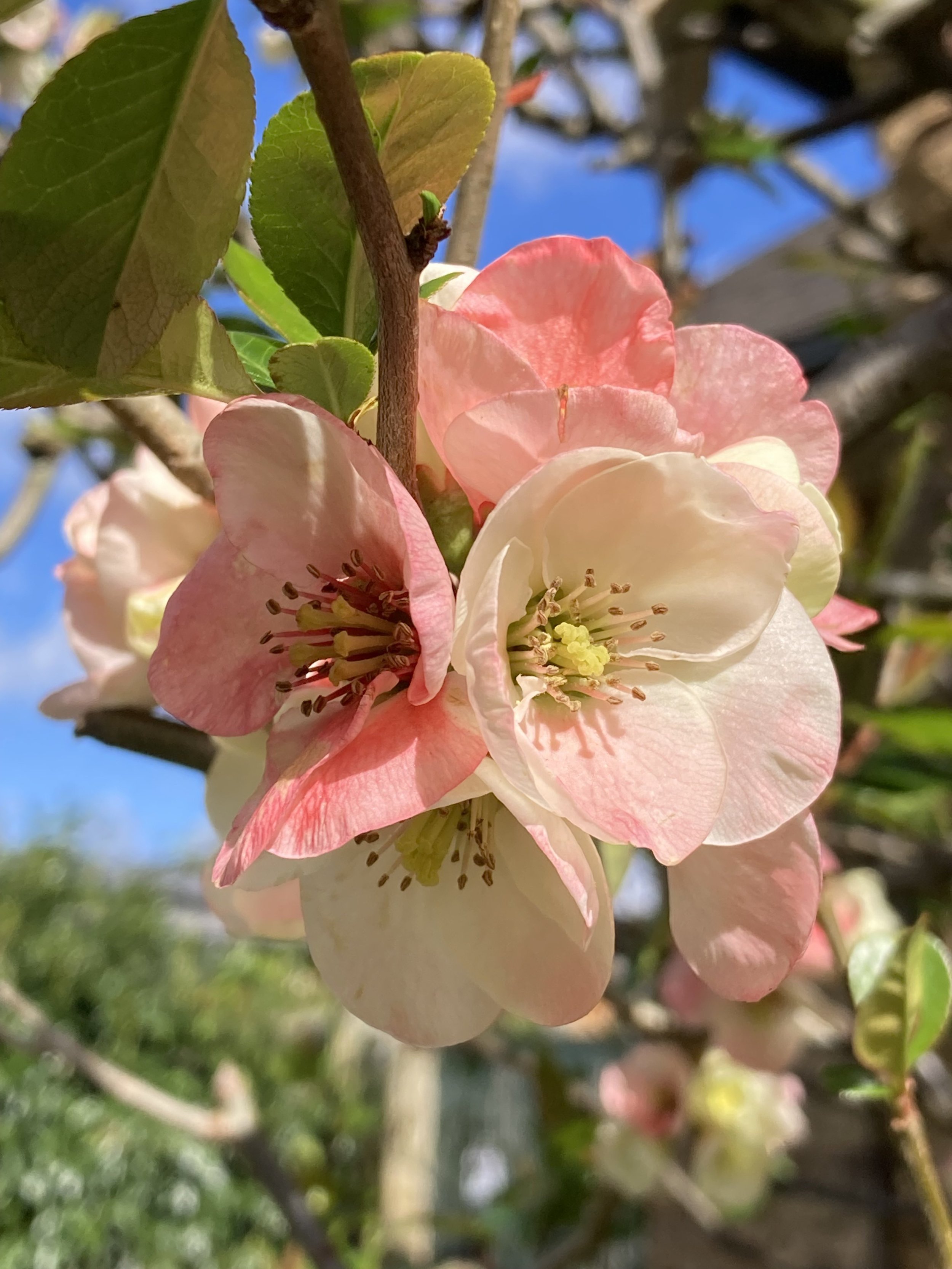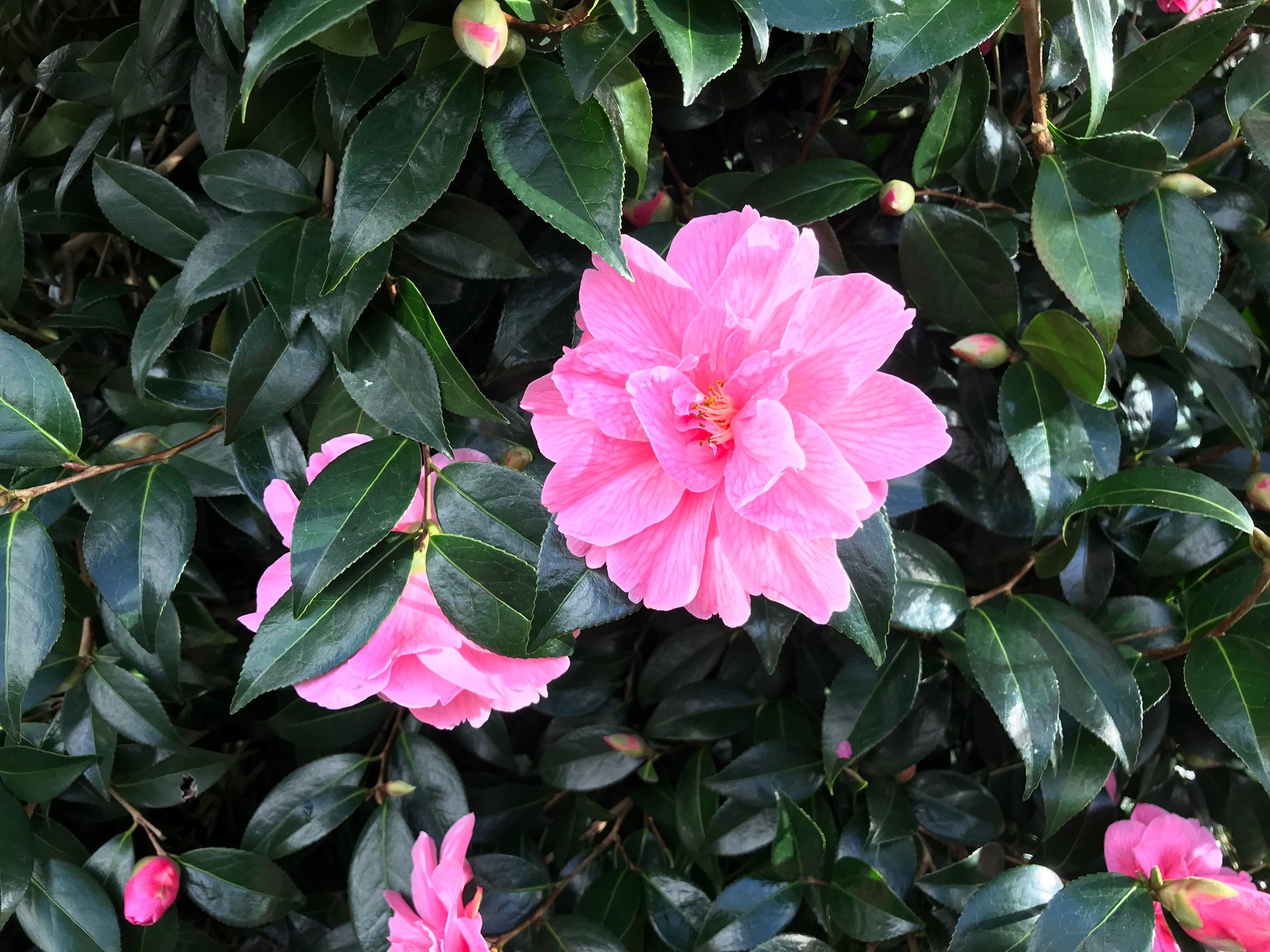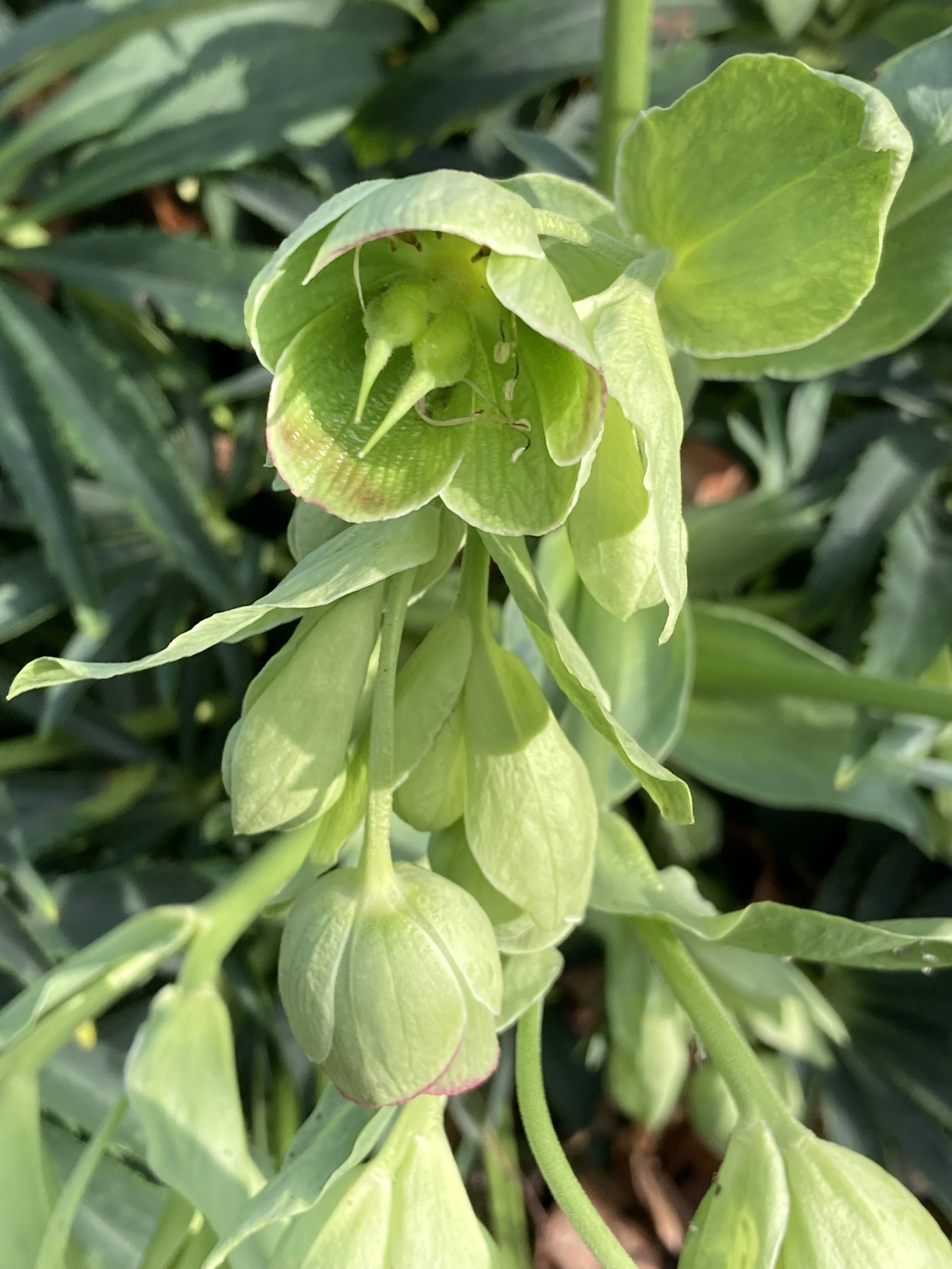Plant of the month
Each month we showcase a plant from the gardens.
Onopordum acanthium 'Cotton or Scotch Thistle'
A member of the Asteraceae, Onopordon acanthium known as ‘Cotton or Scotch Thistle’ has seeded itself on the edge of a bed in the Four Seasons Garden. Although noted as a biennial this must be the third year this fine architectural plant has been here. The giant vertical in any garden makes a bold statement but in the front of the border adds an exciting element of grandeur and majesty
Rosa ‘Wild Edric’
This beautiful English shrub rose is a fabulous addition to a mixed border. It produces large deep pink-mauve blooms in clusters through summer into autumn. Each pointed bud develops quickly into a semi-double flower which lasts a week, and as it matures the golden stamens are revealed, becoming available to pollinators. The profusion of roses on the 2m high bush with the healthy green foliage is a striking sight. The sweet fragrance is of old roses. Being a rugosa rose, R. ‘Wild Edric’ can be used for hedging; its incredibly prickly stems would deter even squirrels.
Rhododendron ‘Loderi King George’
As you walk up to the Bear Pit you cannot fail to notice on your left-hand side, slightly set up on the slope, this magnificent evergreen Rhododendron with its pink flower buds that open to loose trusses of about 10-12 almost pure white flowers, they are sweetly scented lily-like and around 7cms to 9cms across.
Pulsatilla vulgaris
‘Preferring full sun in well-drained soil, it makes a tidy nest of finely cut leaves, in which nestles a clutch of silken hair-covered buds, that slowly unfold wide to the sun soft violet-purple petals filled with yellow stamens.’
Rhododendron ‘Christmas cheer’
If you walk to the Bear Pit you cannot miss this stunning flowering rhododendron by the side of the path. At an eventual height and spread around 2m after 20 years, this dense shrub is covered in spectacular flowers with 8 or so in a cluster and trusses 4.5cm long.
Daphne ‘ Perfume Princess’
Daphne ‘Dapjur01’ or ‘Perfume Princess’ is a most successful hybrid of the 21st century, with arguably the sweetest and freshest of all daphne fragrances. It also has the longest flowering season and the most floriferous plants.
Lonicera x purpusii
Lonicera x purpusii is a hybrid between L. fragrantissima and L. standishii with the quality excelling both its parents. It is more vigorous as well as freer flowering, and will start up in every mild spell until spring, flowering reliably between late December and March.
Juniperus coxii
Juniperus coxii makes a very ornamental, graceful little tree of pendulous bright green leaves in whorls of three, with reddish, shredding bark.
Boenninghausenia albiflora
Commonly known as white Himalayan rue, Boenninghausenia albiflora has pungent dark green leaves divided into attractive feathery ovate leaflets, bearing loose panicles of small cup-shaped white flowers in late summer through to the autumn.
Colletia hystrix ‘Rosea’
With their distinctive and strange appearance, the Colletias will never be mistaken for other plants.
Ligustrum quihoui
As you walk towards the Mediterranean Garden passing the bearpit on your right, you will see on your left the Waxyleaf Privet, Ligustrum quihoui Carr. It cannot be missed at this time of year.
Solanum atropurpureum
For summer, the Gardens’ staff create much admired tender plant displays in the bed to the west of the pavilions and in the bed outside South Lodge on the Thompson Road drive. See in the latter bed extraordinary Solanum atropurpureum!
Phlomis russeliana
Phlomis russeliana or Turkish sage is a hairy perennial with large, ovate, rough-textured grey to mid-green leaves, with a woolly white coating beneath. Stout stems bear whorls of hooded soft yellow flowers 3cms in length from late spring to early autumn.
Cornus kousa var. chinensis
This supremely elegant multi-stemmed shrub produces a beautiful display of flowerheads along the tops of its layered branches.
Tulipa sprengeri
Walk in the woodland garden through the Hamamelis or in the Mediterranean garden and you will see the beautiful intense scarlet flowers of Tulipa sprengeri.
Chaenomeles speciosa ‘Moerloosii’
The delicately coloured flowers of this quince appear on bare stems in spring and continue blooming profusely for many weeks well after the leaves emerge. These have a red tinge when young and become shiny green.
Camellia x williamsii ‘Donation’
This AGM winning camellia is a renowned and cherished hybrid within the camellia world, and its prominence is owed to a range of striking characteristics.
Helleborus Foetidus
Step behind the noticeboard at the Thompson Road gates to see a lovely large swathe of evergreen Helleborus foetidus (stinking hellebore, or bear’s foot hellebore).


















